Beginnings:
Farmingdale sits near the eastern end of what
was the Hempstead Plains, the vast, treeless
prairie that covered central Nassau County.
Englishman Thomas Powell purchased about 15
square miles, including the area that became
Farmingdale, from the Marsapeque Indians for
140 pounds in 1695. He and his children
divided the land into lots and began more than
a dozen decades of agriculture in the area.
Over time, a gristmill, a tavern and a few
other businesses were established. The
community that formed called itself
Hardscrabble. Whose idea that was remains
unknown.
Turning Point: Real estate speculator Ambrose
George opened a general store in Hardscrabble
in 1841 and bought several acres of land. He
changed the name of the hamlet to Farmingdale
by 1845, subdivided his land and laid out
streets. Within a few decades, industry began
to locate in Farmingdale, including a
lumberyard, a brickworks and at least six
pickle factories. The bricks were used for
buildings as near as Garden City and as far as
Chicago.
The village incorporated in 1904. The farms
provided an impetus for the state to establish
the Agricultural and Technical College in
1914. Many of the remaining farms were bought
out in the years after World War I, when
aircraft companies - particularly Liberty -
looked for manufacturing space. The
industrialization resulted in the village's
population doubling by the mid-1930s. The last
open spaces were gobbled up by the post-World
War II building boom.
Claim to Fame: Charles Murphy's famous
Mile-A-Minute bicycle ride - a publicity stunt
in which Murphy tried to keep up with a Long
Island Rail Road train and wound up setting a
bicycle speed record - took place in
Farmingdale.
Where to Find More: ``Farmingdale: A Short
History From the Ice Age to the Present,'' by
Dorothy Vining, published in 1983, and other
material available at the Farmingdale Public
Library.
|
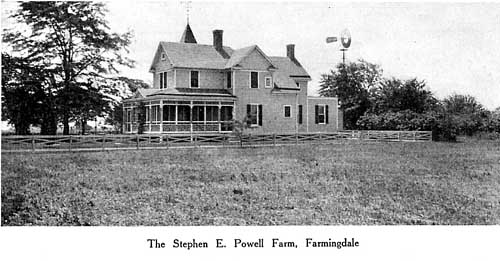
The
Stephen E. Powell Farm |
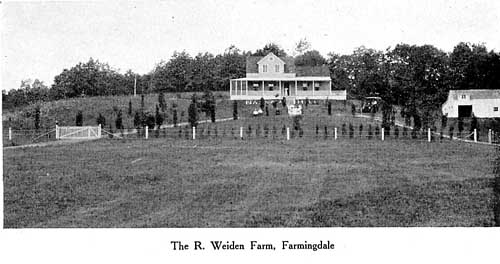
The
R. Weiden Farm |
|
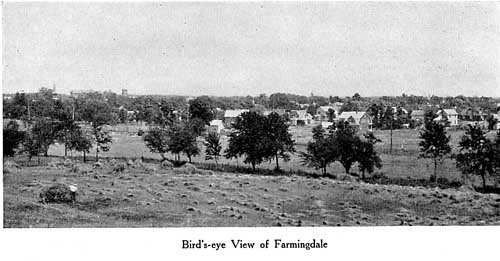
Bird's-eye
view of Farmingdale |
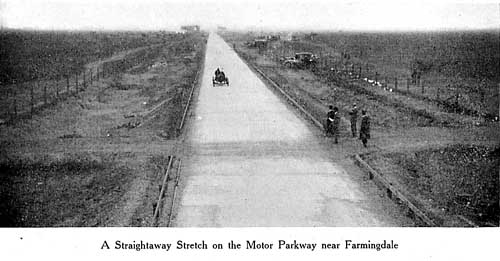
A
Straightaway Stretch on the Motor Parkway
near
Farmingdale |
|
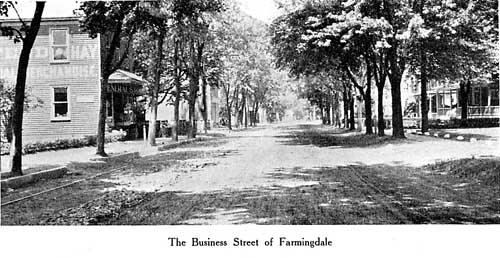
The
Business Street of Farmingdale |

The
Catholic Trade School, Farmingdale |
|
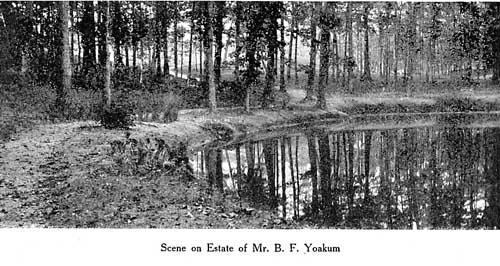
Scene
on Estate of Mr. B.F. Yoakum |
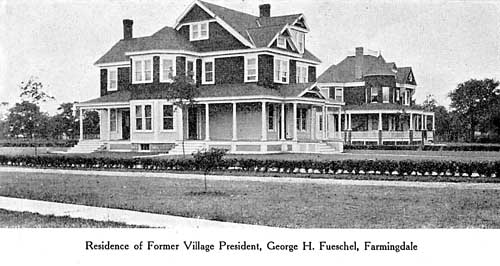
Estate
of Former Village President,
George
F. Fueschel, Farmingdale |
|
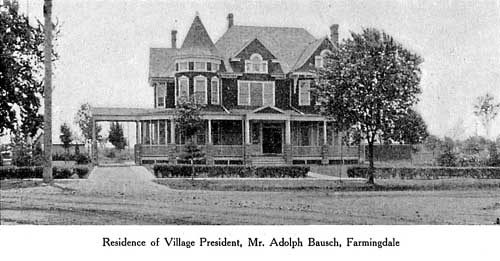
Residence
of Former Village President,
Mr.
Adolph Bausch, Farmingdale |
|
|
|
|
|

